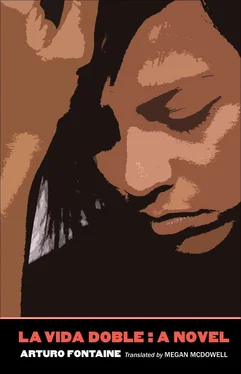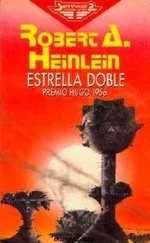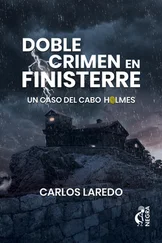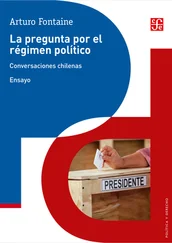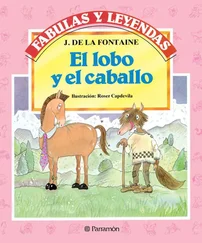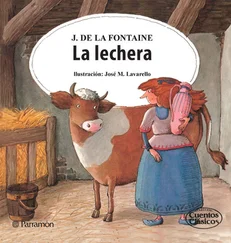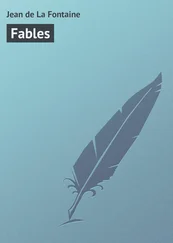1. Members of the National Liberation Army (ELN in Spanish) formed by Che Guevera in Bolivia.
2. Splinter group of the Socialist Party of Chile that tended toward armed struggle.
Someone had opened my curtains, and in among the apricot flowers, I could see the first green buds that were opening to the sun. I closed the curtains and waited in the dark. I called my father at his office. He answered right away. I told him I was calling to apologize and that I hadn’t meant to act the way I had. He choked up, searching for a way to thank me for my gesture, he said, for the generosity of my call, he said, the incommensurable — I remember that word, so unusual for him — happiness of that call. . Then I told him: “If something happens to me, if I do something selfish, it’s not your fault, Dad. Understand? I’m in bad shape. This anguish is eating me up. There’s nothing you can do, understand? I wanted you to be prepared.” And I hung up.
My first outing was to go to the metro station Universidad de Chile. Before I left the house I wrote on a greeting card the same thing I had told my father. Only I added: “Mom, I’m sorry, but you’ll have to explain it to Anita. Hopefully someday she’ll be able to forgive me.”
I had to go out to a public phone to make two more calls that were in order. I knew my brothers must have had someone following me to find out if I had a tail, but I never saw who was watching me. Finally, the rendezvous: El Refugio restaurant, on Gran Avenida about a block south of Carlos Valdovinos. I was to wait, reading the newspaper Las Últimas Noticias with the front page facing the door until I was approached. Someone would say to me, “Hi, there, I’ve got a terrible hangover,” and I would answer, “You should have a coffee with milk.” When that person arrived, I was startled. It wasn’t easy for me to keep calm. I didn’t know the young woman, and I was very tense. But everything went according to plan. She ordered a coffee and I ordered another and we drank them quickly. She commented on an interview of a television celebrity that was in the paper. Nothing else. We went out to take a bus that left us on Alameda. We ducked down into the metro and reemerged at the station Unión Latinoamericana, where an old woman appeared out of nowhere — I had the vague feeling I had seen her face before — and the young woman disappeared. The old woman and I climbed the stairs at her slow pace, and outside we took a taxi that dropped us off on Calle Puente, which we followed until we reached the Central Market. The old woman took a couple of turns around it, bought some vegetables, and left me at a fish stall. The next instant there was the Spartan, no less, the Spartan in person, and we went into a restaurant.
It was hard to control my emotions when I saw him, and I was glad I was wearing sunglasses. How could he not have been captured? At that moment I felt I stood wholeheartedly with my brothers and sisters in the struggle, I was resolved to never fall into temptation again, resolved to give my life. The Spartan seemed shorter and wider than I remembered. He was wearing an ordinary jacket of blue cloth, a white shirt and no tie, and gray pants with pockets at the knees. Common, everyday clothes. The Spartan blended in. An average Chilean. He could be a vendor in the market, or a cabdriver. That was his cover, in fact: taxi driver. I shouldn’t have known that, but as you see, I did. We sat down and ordered two bowls of a mouthwatering conger soup. We drank a Semillon wine from San Pedro. He was, as I’ve said, a truly respected combatant. His military training had begun in Cuba, under Camilo Cienfuegos. Later, already an officer, he was sent to Bulgaria as an instructor in courses of sabotage and intelligence at the Military Academy G. S. Rakovski. At the end of the seventies he was sent as an officer to fight with the nicas. He entered Costa Rica illegally and then crossed over to Nicaragua to join the Sandinistas of the Southern Front, commanded by Edén Pastora. The National Guard was concentrated there, the most elite of Somoza’s army. “I lived through that battle with the artillery stuck in the mud, and grenades that would sometimes explode from the humidity,” he told us. “I lived through it as a practice run for what would someday happen in the south of Chile, in the Araucanía region.” That’s where he learned that “a dictator is only overthrown with bullets.” Many Chileans died in that war. The worst, he told us, was on the hillside of Palos Quemados, close to Lake Nicaragua with its freshwater sharks. But then came the happy march to Managua and the entrance into Somoza’s luxurious palace. The Spartan remembered drinking a Chilean wine there that the tyrant stored in his cellars.
“Cómo que tú andas, Irene? How’re you doing?”
I felt pride at hearing my combatant name. I looked at him and shrugged my shoulders, not knowing how to begin. It was so like him to mix in Cuban expressions and turns of phrase when he talked. He did it with a trace of humor, sometimes, and other times out of habit, without realizing.
“I have an assignment,” he told me with no preliminaries, taking on his curt tone of voice. “To pass on to you the Directorate’s congratulations. You didn’t give up any names during the required number of hours.”
“I held out much longer than five hours,” I protested. “Women can be very brave. .”
He nodded silently and looked at his plate.
“And you were inside for twenty-nine days. That’s a long time. You know what? It wasn’t easy for us, either. In cases like this we have to hope the combatant dies in the fight, and if they’re captured, that they’re killed as soon as possible. I caught myself many times hoping you were alive and that they would let you go.”
I tried to meet his eyes, but he didn’t lift them from his plate.
“Canelo!” I said and my voice broke. I took a sip of wine.
He nodded again, in silence and without looking away from the plate.
“Did your ID hold up?”
“They never questioned the validity of my identity card.”
“Strange. Unusual. Very unusual. Did you know your name was never mentioned in the press? The official communication didn’t mention any arrests, it only talked about three dead ‘extremists’ and two more who got away. How was your questioning with the military prosecutor?” And when he saw the surprise on my face: “You know, there should have been a military tribunal. They caught you red-handed, you had the money in your purse. . All of that falls completely under the ‘Anti-Terrorist Law.’ But according to the official information, the money was found in a bag one of the ‘terrorists’ was carrying. No one ever formally questioned you?”
“No. So I’m not named in the investigation?”
“As far as we’ve been able to find out, no.”
“Then my case doesn’t exist.”
“Exactly.”
“When I left, they made me sign a provisional liberty. .”
“A fake document, obviously. Did you get to see anyone?”
“See, what you could call see, almost no one. But I’m sure they got Chico Escobar, I heard shouts one night and I have no doubt it was him. They also picked up Vladimir Briceño. I passed him in the jail’s corridor, limping along with two guards on him. They’d broken his nose and his shirt was soaked in blood.”
“So you did see something, and in detail: broken nose, limping, bloody shirt. . Why did they fall?”
“I don’t have information about that.”
The Spartan nodded his head again and he stared into his soup.
“They didn’t ask you about them?”
“No.”
“Anyone else?”
“Tomasa. She says she was already a socialist in grade school, that her father was an ‘entrista,’ 1that she had a boyfriend who was ‘eleno,’ and that she got to meet Elmo Catalán himself when she was just a kid. Could that be true? I don’t know when she joined the Red Ax movement. She must be thirty-something. They did bring her face to face with Briceño and Escobar. I don’t know what cell she belongs to.”
Читать дальше
